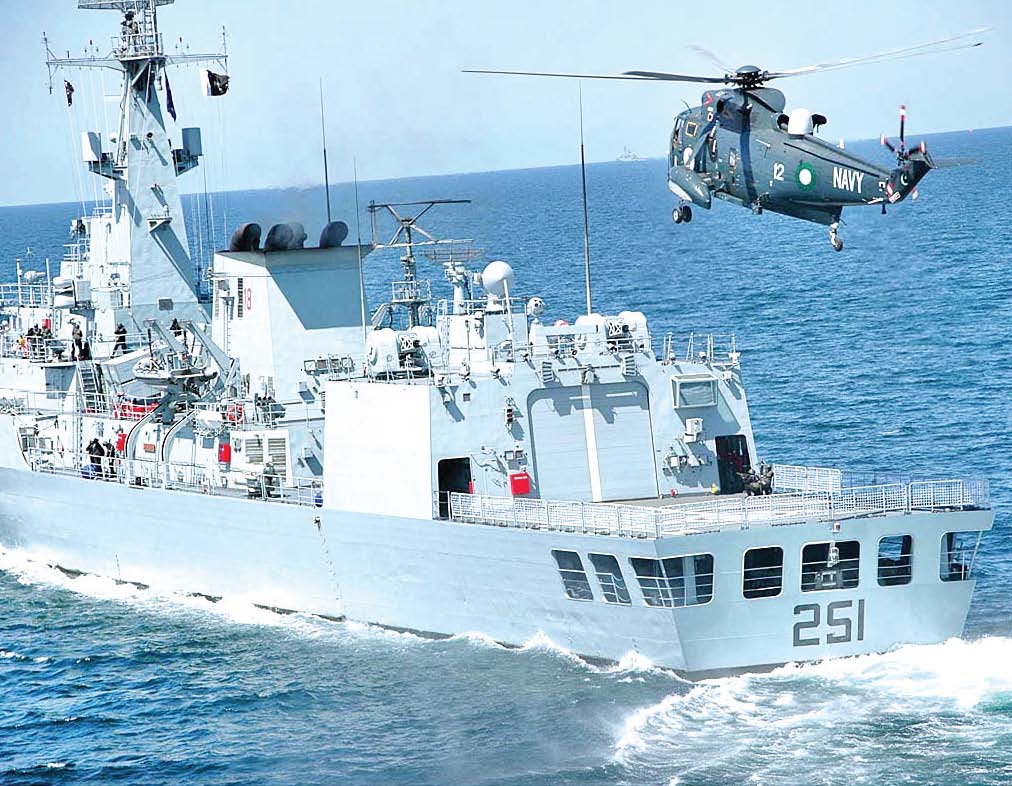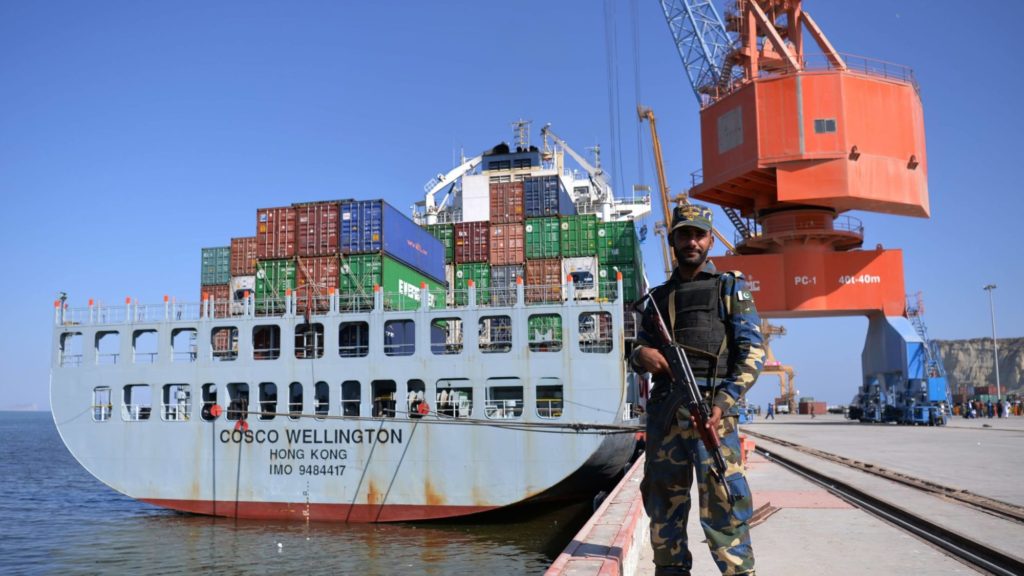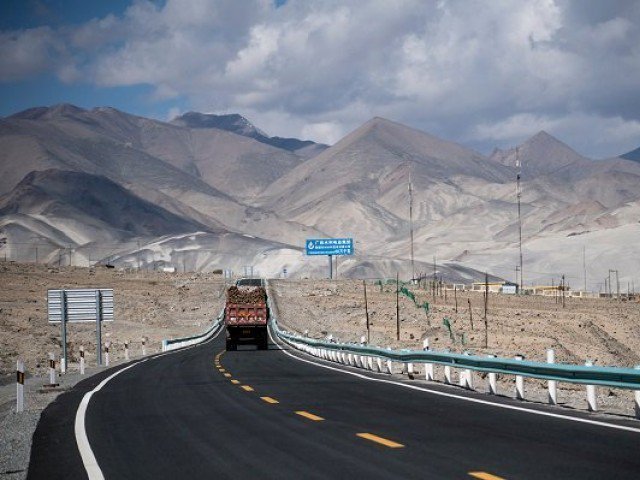The world political stage has dramatically changed at a very fast pace during 2020 and 2021. The pandemic affected the global economy, rules of engagement in all spheres of life changed and political stage shifted from Europe to China and Russia followed by a chaotic withdrawal of NATO forces from Afghanistan and the rise of the Taliban in Afghanistan. These past couple of years were also important and instrumental for the China-Pakistan Economic Corridor (CPEC) related developments and further regional engagements and alignments. Pakistan has become the pivot for all critical activities in the aftermath of sudden developments in Afghanistan and the Organisation of Islamic Cooperation (OIC) foreign ministers conference in Islamabad is the result of the key leadership role Pakistan has been playing recently. Having said that, due to CPEC development and regional connectivity via Afghanistan to Central Asian States, it is utmost important for Pakistan to strengthen its key role in the Indian Ocean region (IOR) and Arabian sea.
Pakistan’s policy makers have never tried, as far as my knowledge is concerned, how to leverage our great maritime potential and transform this potential to reflect into the nation’s foreign policy. Pakistani military establishment is still following traditional land-based approach since the traditional military set ups and doctrines in Middle east, Central Asia and Subcontinent were laid out on land-based forces along with war operations. In recent years however, a sense of realization has certainly emerged due to the flagship CPEC project and it is being felt that a strong Pakistan Navy is vital for the protection of Pakistan’s extended Exclusive Economic Zone alongwith protection of sea based CPEC related commerce.
As said in previous write ups, seeing Pakistan’s land border situation and hostility with its immediate neighbor, India and with Afghanistan in the past, this traditional land-based approach might prevail for some period; however, the new paradigm has changed because of CPEC activities and Chinese access to Arabian Sea is one of the key elements. One must keep in mind, the CPEC trade route will be only safe guarded if a powerful Navy stands behind it. Handling this paradigm shift, the Pakistan military establishment must realize having a multilateral approach by utilizing and effectively employing tri-services strategy for economical and maritime trade protection purposes.
As far as Foreign Policy is concerned, I have not seen any solid policy towards maritime commerce or benefiting from our seabed resources in the Arabian Sea, protection of EEZ and especially what should be our objectives in the greater Indian Ocean region (IOR). The strategic alignment between Pakistan and China has already been developed due to CPEC related trade interests and activities in the Arabian Sea, however, this collaboration should further increase to cover the Indian Ocean Region (IOR). But before that, as a pre-requisite, Pakistan must be clear on the IOR in terms of foreign policy objectives.
Pakistan’s IOR interests should basically cover four main pillars in my view.
- Safeguarding maritime trade
- Protecting EEZ
- Countering Indian advances in IOR
- Strategic Presence in IOR and Nearby Regions
The trade between Pakistan and China was recorded at US$ 16Bn in 2015. The China Pakistan Economic Corridor project, with initial investments worth US $46 billion and Gwadar port as its pivotal point, would give further boost to the already strong bonds of friendship between the two countries and bring prosperity to the entire region. The CPEC investment volume increased up to US$ 55B in 2017 and has the potential to gain more momentum as trade activities boost up.
According to the Journal of the Indian Ocean Region (JIOR), more than 80 percent of the world’s seaborne trade in oil and gas transits through the Arabian Sea and the Indian Ocean choke points; with 40-45 per cent passing through the Strait of Hormuz, 30-35 per cent through the Strait of Malacca and around 10 percent through the Bab el-Mandab Strait. It is obvious that half of the world’s container traffic passes through the Arabian Sea and the Indian Ocean, and the associated ports handle about 30-35 per cent of world trade. Due to the fact that most of the known world oil reserves are present in the said oceans, the dependence of industrialized nations on Gulf oil is enormous, hence any interruption of this traffic would have devastating impact on economies of these nations. In this scenario, developing a port at Gwadar makes lots of economic and strategic sense for China. Its oil containers and cargos from Persian Gulf have to travel thousands of miles over sea and over land to reach Western China. The Gwadar-Kashgar route shortens this distance to 2500 kms. Strategically, China’s shipping containers have to pass through the choke point of Malacca Strait which remains under the watchful eyes of the Indian Navy. Hence, developing a port and utilizing the Gwadar-Kashgar route is both strategically and economically important for China. CPEC and Gwadar port project would provide a most economical route for trade connectivity between China and the rest of the world over land and at sea. CPEC will not only facilitate the trade between Pakistan and China but will also provide a path for regional and global connectivity. Thus, Pakistan will reap enormous economic benefits from CPEC related infrastructure and maritime container traffic such as receiving destination charges, customs fee and warehousing charges alongwith offering enormous employment opportunities. Since most of Pakistan’s trade is sea borne, it makes sense to protect the trade and ports from any potential blockade to safeguard maritime commerce. In this regard, the Pakistan Navy must make efforts for the induction of helicopter carrier and dedicated airborne early warning aircrafts. By acquiring such inventory, Pakistan Navy will be able to sustain its surveillance operations for long periods of time with enhanced capabilities.

Protecting our EEZ and Sea Control should be the topmost priority amongst our naval and civilian leadership because of the precious resources lying under the seabed in Pakistan’s EEZ in Indus and Makran basins. The Indus basin constituting delta/fan system and being the second largest in the world after the Bay of Bengal is analogous to many producing basins in the world in geological terms. Pakistan has not had much success in offshore drilling in the past though efforts have been made by such drilling firms as Sun Oil Company, Wintershall, Husky, Occidental, Total, PPL, Shell, and ENI which drilled about twelve wells in all. But as technology improves, we hope for better success rates. Sea food is another precious resource where our fish production in the marine sector, extending up to 35 nautical miles from the coast, is nearly 70 percent while the remaining 30 percent is obtained from inland sector. There is no reliable data on the quantum of fish resource beyond the 35 nautical miles limit in the EEZ which is routinely transgressed by fishing trawlers from other countries. Pakistan’s Maritime Security Agency (MSA) frequently apprehends Indian fishermen who intrude into Pakistani waters but its reach and capacity against bigger offenders operating further south of the coast is severely constrained. MSA does not have sufficient air surveillance assets to monitor the activities in EEZ, nor does it have enough surface vessel resources to effectively police the area once intruders have been reported.
While this huge seabed area offers opportunities to explore additional resources, its unique geographical proximity also poses challenges in the form of threats which could jeopardize our national security. These threats could emerge from inter-state territorial disputes, political instability, piracy, dumping of toxic waste, human smuggling, drugs and arms smuggling and transnational crimes including maritime terrorism such as the blowing up of a fishing boat by the Indian Coast Guard in the past. In short, Pakistan must lay out a comprehensive strategy for exploration of resources both beneath the surface and under the seabed, along with its surveillance and defense strategies as soon as possible. Pakistan’s political government must notice this enormous EEZ opportunities and increase the naval budget by two times so that Pakistan Navy could manage additional inventory induction in next 3 to 4 years and safeguard our economic interests in Arabian Sea and further to our dominion of interest. It will be very challenging for Pakistan Navy to dominate in home waters and distant seas with existing naval inventory. CPEC maritime interests and EEZ protection and exploration dictate clear guideline for Pakistan Navy to be able to dominate both home and distant waters.
India tried in the past to make advances in Central Asian (CA) region attempting to by-pass Pakistan through land route. While this costs the Indians huge in monetary and human resources they were desperately trying to find a solution. The only way out that India found is to play around with the Iranians and their investment on the Iranian Chahbahar Port. A detailed chapter was written under the name of “Managing Iran” in the previous DJ publication. Pakistan must do everything to keep the Iranians on their side thus preventing use of Iranian soil against Pakistan.
Similarly, uninterrupted CPEC related trade and exploration of maritime resources dictate Pakistan Navy and military establishment to focus on the IOR and its adjacent islands and coastal nations. Pakistan must establish meaningful naval and military relations with Maldives, Sri Lanka, Yemen, Oman and Somalia. These are the countries crucial for establishing a solid foothold in the IOR. If we have a strong presence in the said countries, the maritime commerce could be monitored easily along with countering any negative Indian ambitions regarding Pakistan’s maritime trade and resources. Also, this will help counter any situation if the Indians try to blockade Pakistan’s major ports.
As is well known the Indian Coast Guard is expanding enormously in terms of role and responsibilities. Rather than concentrating on its core responsibilities of coastal defence, it is now trying to counter and check the Pakistan Navy on its own strength, thereby relieving the Indian Navy to maintain its presence/ dominance in IOR, Bay of Bengal and beyond. In such a scenario, Pakistan’s advancement towards said IOR nations is proactively required.
There are quite a few important maritime trade routes located adjacent to IOR that are of particular interest to Pakistan, such as the Strait of Hormuz and Bab El Mandab, having further connection with Suez Canal and the Gulf of Aqaba that have made this region a lot more visible for global Navies and this trade route is especially important for the Pakistan Navy in terms of its naval strategic doctrine.
Pakistan maintains close military ties with all Gulf States (GCC) like Saudi Arabia, UAE, Oman, Qatar and Bahrain. The energy needs for Pakistan are strongly associated with these States via the Strait of Hormuz along with other economic stakes. Similarly, the holy cities of Mecca and Madinah are located near the shores of the Red Sea adjacent to Bab El Mandab. For Pakistan, the security of these two holy cities is the prime factor that dictates deeper defence ties with Saudi Arabia with a special emphasis on military presence on-ground if such a time were to come. Since this Red Sea area of Saudi Arabia is open to the Gulf of Aqaba that has an Israeli port Elat next to it, it becomes strategically important for both Pakistan and Saudi Arabia, to keep in mind the previous Arab-Israel conflicts. Pakistan must watch this small Gulf to counter any emerging challenge resulting from Indo-Israel alliance which is certainly not in favor of Pakistan. Even the dominion of interest for Pakistan stretches up to the Mediterranean Sea for conducting naval exercises with Turkish navy and other regional countries.
The dominion of interest for Pakistan is supposed to be beyond its extended Exclusive Economic Zone. This dominion of interest will further stretch when Pakistan China joint naval forces will collaborate in the coming future for CPEC security matters covering considerable part of the Indian Ocean. For example, Pakistan maintains very close ties with Sri Lanka, it being imperative to keep Sri Lankan on her side while dealing with the Indian hegemony in Indian Ocean. Since India has negative ambitions towards CPEC and our EEZ, it is imperative for Pakistan to try and encircle India from every side possible in IOR with Chinese support.
One of the best ways to increase Pakistan’s naval and military presence is to get hold of the islands located in the IOR. Pakistan is a key member of the Islamic Military Counter Terrorism (IMCT) coalition and can leverage this stature by asking for naval logistic support from countries that are part of this alliance. For instance, UAE is utilizing the Socotra Island as its naval logistic station and Pakistan can do the same. Only aggressive and effective diplomacy along with strong resolve from our political and military establishment will be required.

It is not clear yet if anyone from our hierarchy has discussed this with friendly countries but if such naval logistic agreements can be arranged, the Pakistan Navy could use islands in the Arabian Sea and IOR such as Socotra and its adjacent smaller Islands like Darsah, Kilmia and Samhah, the Red Sea Islands under Saudi control, Gulf Oman Islands like Almassirah, Khuriya Muriya Islands like al Qibliah, Alhallaniyah and Alsawda and Bosas in Somalia. Keep in mind Maldives is a key station that should be kept in focus as well. The Pakistan Naval Chief should visit said IOR countries to facilitate laying out the foreign policy about IOR. Pakistan must be ready to counter Indian expansionist ambitions in IOR thus try to neutralize as much as possible Indian maneuvering and expansion in Central Asia.
We must also aggressively leverage our friendship with Turkey that has plans to establish military bases in Somalia, Qatar and in some other regional countries. We can get logistic support from those Turkish military stations in order to fulfill our sea control vision at extended EEZ and deep reach to IOR. Turkey has also great deal of influence in the Mediterranean Sea and Pakistan should get involved in that part of the world for supporting joint operations with the Turkish navy.




